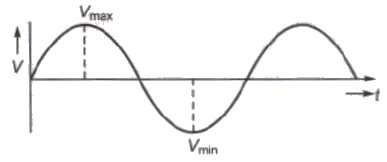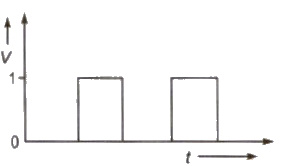Elements of a Communication System | Revision Notes for CUET Science Preparation PDF Download
Communication
Faithful transmission of information from one place to another place is called communication.
Optical fibers are used in optical communication.
 Fig: Communication system
Fig: Communication system
Communication System:
A communication system contains three main parts:-
(i) Transmitter: It process and encode the information and make it suitable for transmission.
The message signal for communication can be analog signals or digital signals.
An analog signal can be converted suitably into a digital signal and vice-versa.
[An analog signal is that in which current or voltage value varies continuously with time.
A digital signal is a discontinuous function of time. Such a signal is usually in the form of pulses.]
(ii) Communication Channel: The medium through which information propagate from transmitter to receiver is called communication channel.
(iii) Receiver: It receives and decode the signal.
Analog Signal:
A signal in which current or voltage changes its magnitude continuously with time, is called an analog signal.

Digital Signal:
A signal in which current or voltage have only two values, is called a digital signal.

Note An analog signal can be converted suitable Into a digital signal and vice-versa.
FAQs on Elements of a Communication System - Revision Notes for CUET Science Preparation
| 1. What are the main elements of a communication system? |  |
| 2. How does the sender play a crucial role in a communication system? |  |
| 3. What is the significance of feedback in a communication system? |  |
| 4. How does the channel affect the communication process? |  |
| 5. What role does the receiver play in a communication system? |  |






















